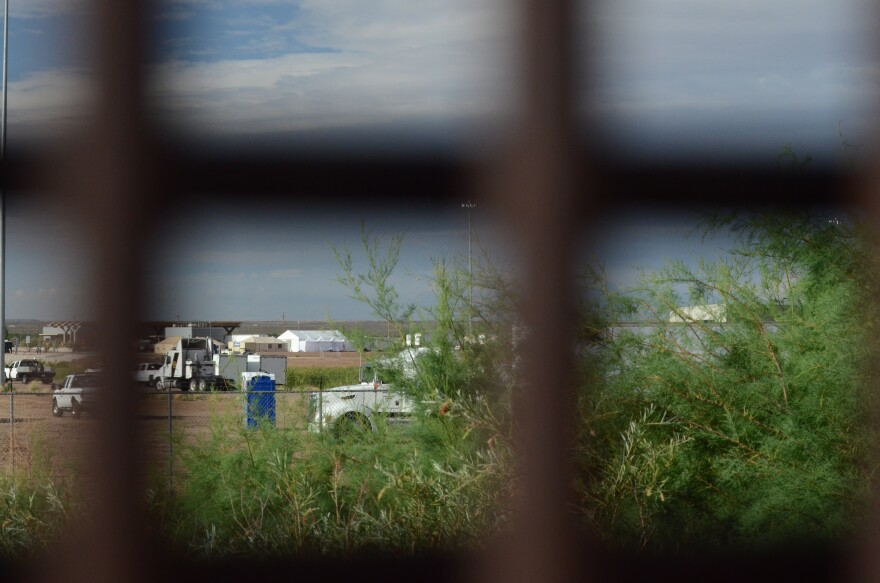The U.S. Attorney's Office for the Western District of Texas dismissed some cases of illegal entry into the United States involving family separation.
The announcement comes shortly after President Trump signed an executive order, which intends to end the administration's policy of separating migrant families at the border. The policy led to more than 2,000 families separated during a six-week span from April to May.
When asking for confirmation on the dismissals on Thursday afternoon, the U.S. Attorney's Office for the Western District of Texas told Marfa Public Radio that the office would dismiss pending cases involving family separation because of the executive order Present Trump signed Wednesday.
A spokesperson confirmed the dismissal of misdemeanor cases for adults separated from children if they entered the country illegally. Additionally, cases of illegal re-entry after deportation will be determined on a case-by-case basis depending on whether or not the defendant has a criminal history.
However, later in the day, the same spokesperson retracted the confirmation of case dismissals without further explanation.
By Thursday evening, the spokesperson had sent a follow up response to Marfa Public Radio.
“Following the President’s executive order, we are moving quickly to keep families together as we process the criminal charges for those who crossed illegally," the statement reads.
The office maintains that the administration's zero tolerance is "still in effect" but says there is a "necessary transition" that needs to happen.
"As part of the transition, the office [Thursday] dismissed certain cases that were pending when the President issued the order," the e-mail reads. "Contrary to reporting, the office did not issue any memorandum to the courts."
Assistant public defender Shane O’Neal says two of his pending cases involving child separation were dismissed yesterday. He thinks that may have been a premature move from the Western District’s office.
"I think that’s why the US attorney for this area took that action, 'cause he interpreted the executive order as requiring it," O'Neal said. "The administration, it seems, wants to still be able to say they’re doing zero-tolerance."
O’Neal says keeping families together and continuing the “zero-tolerance” policy are inherently at odds with each other. That’s because right now children cannot be kept in detention for longer than 20 days. As a result, the U.S. Attorney's Office for the Western District is scrambling to figure out a workaround.
"They’re kind of trying to react to the executive order which was very clearly was written by someone who doesn't understand how it functionally works on the ground," O'Neal said. "So therefore [it] didn’t cover how we were gonna reconcile these two seemingly irreconcilable problems of doing zero tolerance and not separating families."
The Trump administration is seeking permission to retain children for longer than 20 days. How this situation will continue to play out in the Western District before a ruling on that question comes in remains to be seen.


